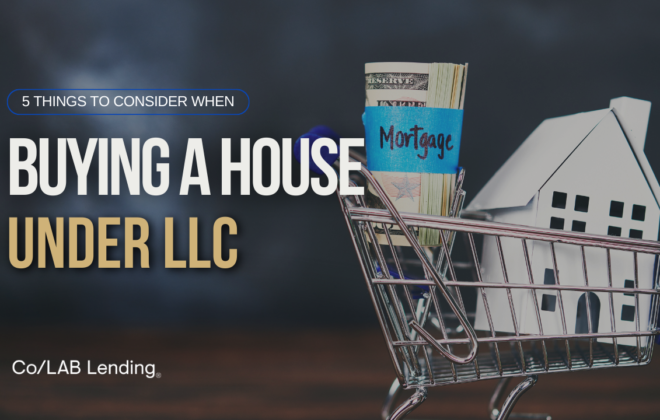Closing On A House: Your Comprehensive Guide
The Comprehensive Guide to Closing On A House
You did it! Closing day is fast approaching. You made it through the rough waters of the mortgage application process and you finally heard those magic words – “You are cleared to close”.
But, what happens next? Where do you go? Who do you meet? What will you do when you get there? Is there anything you need to bring with you?
These are all great questions and pertinent to finally getting the keys to your new home.
In short, your mortgage closing will include meeting with various legal representatives, signing documents, providing any other required documents, making any payments that are required and then being handed a set of keys to the property.
Understanding what to expect will surely help make this experience a smooth one. Lets take a look at what you can expect at your home closing.
Getting Ready for Closing Day: What You Need To Know
After you get a “Clear-to-close” on your home loan the next step will be to get a date and location for the closing. Usually the title agent or attorney you are using will notify you of the time and place. Most often, the location is at the title-agent’s office or the attorney’s office. These days however there are actually traveling title agents who will come to you. In that case you could ask them to meet you at your Realtor or lenders office. That sounds pretty convenient!
What Do I Need To Bring To Closing?
Before you arrive at you closing be sure to have a few things prepared. Here is what you will need to bring to the appointment:
- Bring your closing payment in the form of a cashier’s check. Your attorney will give you the exact amount you will need typically 24 – 48 hours before the appointment.
- Bring a checkbook. Although not likely, sometimes there can be last minute additions to fees or adjustments.
- Bring some personal identification like your driver’s license or passport.
- If you have any paperwork from your real estate agent or lender bring them with you.
Who Will Be There?
Depending on what state live in the legal requirements for who must be in attendance varies. For example, in Pennsylvania, an attorney must be present during the signing of the documents even if the title agent is present. Other states only require that the title agent be present.
Those who could be at the appointment:
- Attorneys
- Title company representative
- Your real estate agent
- The seller’s agent
- Your mortgage broker or loan officer
What Will I Sign?
During your appointment, there will be a number of documents that you must sign:
- Deed of trust
Signing this document means you are aware your property to be held as collateral against your loan. - Promissory note
Signing this note is the legal agreement you have with the lender agreeing to make your payments on the mortgage. - Closing disclosure
Signing this document acknowledges that you are aware of all the itemized final credits and charges based on the terms of the contract. - Initial escrow statement
Buyers sometimes have to pay future taxes and insurance up front. This money sits in a third party account until the mortgage company uses it to pay the taxes. - Loan estimate information
Sign this to acknowledge your loan rate, terms, origination fees, points, appraisal fees, and closing costs.
Avoiding Money Mistakes When Closing On A House
- By the time you have reached your closing day you already made your down payment and other payments like appraisals and home inspections if needed/required.
- You will also, most likely pay closing costs. The amount varies but generally speaking the amount could be between 3 and 5 percent of the total loan amount.
- You will get a loan estimate when you first submit your loan application within 3 days which will give you a fair idea of how much your closing costs will be. As the name implies it is just an estimate. 3 days before closing you will get a CD, also called a closing disclosure, which will have your finalized costs.
How Long Will My Closing Take?
Expect to spend at least a couple of hours at your closing. There is a lot to sign. Also if you are selling a home and buying a home on the same day it could take a bit longer. Make sure you make the proper arrangements at work and at home.
Some Closing Tips To Consider
Compare your loan estimate to your CD
Compare your loan estimate to your CD when you get it. If the numbers vary significantly or there is a different interest rate on it don’t sign it. Just ask your mortgage lender about it. Discrepancies or errors do happen and they can usually be easily resolved at this time.
Close towards the end of the month
Closing towards the end of the month will save you paying extra interest. You mortgage payment covers the previous month but the lender requires you to pay the interest for any of the days you own the home in the previous month.
For example: If you buy close on August 30th, your first mortgage payment will be on October 1st and it will cover September. You will have to pay interest for 1 day in August. (August 31st). If you closed on August 21st. You would owe 9 days of interest.
That’s it. It’s important to know that the information above is a good outline of what to expect when you finally close on your new home. Every lender and attorney is different so the experience may vary a bit for everyone. The important thing to remember is that the people there with you are there to help you. Be sure to arrive on time. Don’t be afraid to ask questions if you don’t understand something and enjoy your new home when your done!
Mortgage Consultation Today!
Tags In
Related Posts
1 Comment
Comments are closed.
Categories
- Credit (4)
- FHA Loans (3)
- Finances (3)
- First Time Home Buyers (6)
- Grab Bag (7)
- Home Technology (1)
- Homebuying Tips (17)
- Inspiration (1)
- Insurance (3)
- Interest Rates (3)
- Loan Process (1)
- Mortgage Financing (14)
- Motivation (1)
- News (1)
- Press Release (8)
- Renovation (2)
- Self Employed (1)
- Tips & tricks (1)
- Uncategorized (134)
- USDA Loans (1)
- VA Loans (2)





Thanks for giving your ideas with this blog. Furthermore, a myth regarding the banking companies intentions when talking about foreclosures is that the loan company will not getreceive my repayments. There is a specific amount of time that the bank will require payments every now and then. If you are also deep within the hole, they are going to commonly demand that you pay the payment entirely. However, i am not saying that they will not take any sort of installments at all. In the event you and the financial institution can have the ability to work some thing out, your foreclosure practice may stop. However, if you ever continue to skip payments in the new system, the foreclosure process can just pick up where it left off.